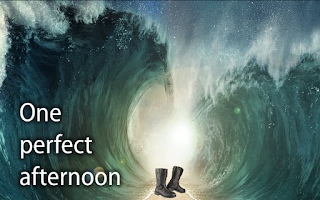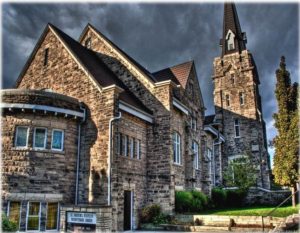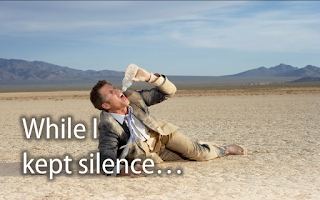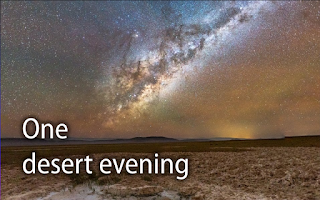Apr 12, 2019
Gay Lea Foundation announces five new charitable grants
This January, the Gay Lea Foundation announced it had approved more than $250,000 in grants at its first meeting of the 2019 fiscal year (October 1 – September 30), with funds being channeled to 15 registered Canadian charities working in Ontario, Alberta, Haiti, Malawi and Tanzania.
Today, the Foundation follows up on that announcement with news of five more Canadian charities set to receive grants in 2019, raising the total value of funds distributed by the Foundation since its creation in 2014 to more than $957,000.
“At times, the number of applications we receive can seem overwhelming,” says Foundation Chair, Rachel Caldara, who is also the Manager of Compensation, Benefits and Human Resources at Gay Lea Foods. “There are so many stories of people in need, and the number of applications is constantly increasing.”
“But at the same time,” she continues, “it’s heartening to know there are so many Canadian organizations helping people. At the end of the day, to be able to support these organizations, and know that what we’re doing at Gay Lea Foods is making a difference is something I’m incredibly proud to be a part of.”
Funding for the Gay Lea Foundation is provided by an annual contribution of $150,000 from Gay Lea Foods and personal donations from across the Gay Lea Foods’ family. The organization supports registered Canadian charities that work toward poverty relief, the advancement of education and/or purposes beneficial to community development.
Read on to learn more about the five new grant recipients and the unique projects they’ve undertaken to cultivate hope for those who need it most!
CROSSROADS INTERNATIONAL
Crossroads International is a leading Canadian international cooperation agency, dedicated to advancing equality for women and girls and eradicating poverty in some of the poorest countries in Africa and South America.
Project: Building climate change resilience with women co-operative farmers in Senegal
Supporting subsistence women farmers in two extremely vulnerable communities in Senegal, West Africa, this initiative aims to promote an environmentally sustainable gardening system exclusively managed by women co-operative members. The project will introduce drought resistant, nutritionally dense crops with shorter production times, a drip irrigation system, solar powered water pumps, a storage unit and farmer “field school” training, providing the women with the equipment and knowledge they need to produce vegetables year-round using green technology and agroecological practices adapted to the region.
Ultimately, it is anticipated that 1,500 women farmers and an estimated 22,000 community and family members will benefit from a nutritious and reliable food source, as well as additional sustainable income through year-round market gardening. Importantly, the female farmers will be equipped and trained to resist the effects of climate change in their community.
Gay Lea Foundation Donation: $25,000 to dig seven new wells, rehabilitate four existing wells, finance equipment purchases to launch the project, and train women on the use and maintenance of the solar powered pumps.
EDUCATION 4 CHANGE
Education 4 Change is a Waterloo, Ontario-based volunteer organization that works with local education and community leaders in the remote and underserviced Kelafo region of Ethiopia to help children attain their potential and aspirations through education, improve the quality of their education system and increase literacy rates for all.
Project: Expanding literacy programming
The Kelafo region has more than 40 villages and a population of more than 200,000, but past political disputes have left the area underserviced, resulting in low literacy rates, a lack of employment skills and extreme poverty. Over the past 10 years, Education 4 Change has provided training for the government-hired teachers, helped the communities form parent councils and provided much needed classroom supplies. They currently have three projects impacting seven villages in the area: a mobile school; adult literacy classes; and the region’s first and only library. The current project will allow E4 Change to expand these existing programs and bring much needed educational resources to more communities in the region.
Gay Lea Foundation Donation: $25,000 to hire a second full-time teacher for the mobile school; hire a full-time employee to assist the librarian and run literacy classes from the library; hire a part-time teacher to offer adult literacy classes in a new village; and purchase 300 more locally-sourced Somali books for the library.
GREATER HAMILTON FOOD SHARE
Through its food recovery program, Hamilton Food Share sources good, healthy food deemed surplus and redirects it to 12 food banks and 103 hot meal programs in Hamilton and the surrounding areas. Last year, Hamilton Food Share redistributed 3.2 million pounds of food, more than 60% of which is fresh or frozen, to 12,628 individuals accessing food banks every month, one third of whom are children. Hamilton Food Share puts healthy food on the tables of families who need it the most.
Project: Support for food procurement operations
To collect and distribute food, Hamilton Food Share operates a warehouse with docking capacity, full refrigeration system, cold storage, two refrigerated trucks and one cargo van.
Gay Lea Foundation Donation: $5,000 to support the operational costs of food procurement, including fuel, driver’s wages, and repair costs associated with operating a trucking vehicle.
OPEN DOORS AT ST. CHRISTOPHER’S
Open Doors at St. Christopher’s Anglican Church is a group of free, community-based, non-denominational programs that support families and individuals in the church’s Burlington, Ontario, neighbourhood by relieving symptoms of poverty and improving lives through connection, food, clothing and assistance.
Project: Community Meal Program
The Community Meal Program is the heart of Open Doors, providing a sit-down dinner for an average of 150 people every Tuesday night, and a warm, healthy sit-down lunch for over 80 seniors every second Thursday (two times per month). Working with food rescue partners in Burlington, the church is able to provide meals for only $1.00 per person, and also operates a food bank so that guests may pick up additional groceries after their meal.
Gay Lea Foundation Donation: $9,880 to purchase food and cooking items not made available at the food rescue (i.e. certain meats, milk, cheese, eggs, etc.) for the community over the next year.
ST. ANDREW’S HESPELER PRESBYTERIAN CHURCH
Hope Clothing at St. Andrew’s Hespeler Presbyterian Church in Cambridge, Ontario, provides free new or gently used clothing, personal care products and small household items for those in the community who need extra help making their budget stretch, including the working poor, and those who are unemployed, homeless, victims-of house fires or abuse, etc.
Gay Lea Foundation Donation: $2,000 support the creation of a permanent paid Hope Clothing Coordinator position to coordinate volunteers and ensure all people are treated appropriately.








